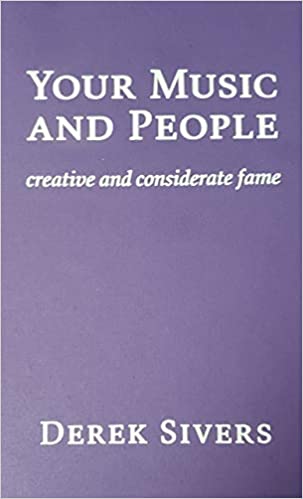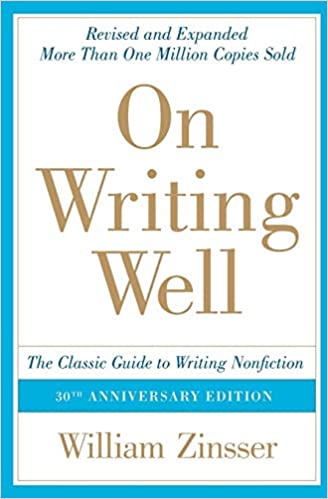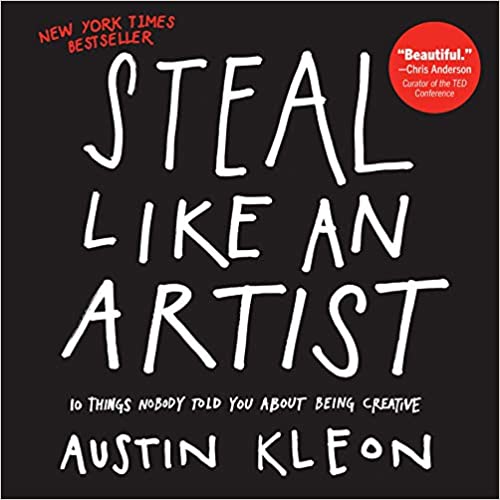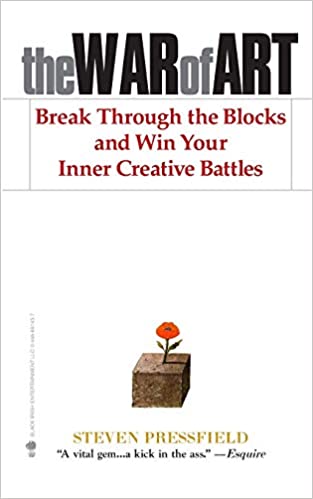I’ve read books in English, French, and Arabic. Both fiction and non-fiction.
Mostly, I’ll post here non-fiction English books. At least, the ones that I can recommend and might be relevant to most of you.
Also, I’ll skip the books that I read but don’t remember much of them. I spent a decade reading without taking notes. Please don’t do like me. It’s such a waste.
This section is only meant to spark your interest in books. So I’ll only write my impressions and three notes from the books. For more details, summaries and reviews, you can find them on Amazon or any other source.
For a faster research, you can click on any tag below to find the books of your interests.

Your Music and People
Creative and Considerate Fame
Derek Sivers
I like the concise way Derek Sivers presents his ideas. His book follows the same logic as his blog: one tiny idea per chapter. Even if the title mentions music, any content creator can benefit from it. Art, people, money, marketing, mindset are some of the ideas discussed in the book.
Three notes from the book:
1- It’s impossible to fail if your only mission is to see what happens: test, test, test.
2- Beware of putting people on a pedestal. It can prevent real friendship. You can’t have a real conversation if you are self-conscious and terrified. Forget titles.
3- Don’t try to beat them at their game. Play a completely different game.

On Writing Well
The Classic Guide to Writing Nonfiction
William Zinsser
This is one of the first books I read about writing. For non-fiction, it's just perfect! It demystified writing for me and helped me start my blog. I can't recommend this book enough. It contains priceless and simple advice to learn and improve our writing.
Three notes from the book:
1- Clear thinking becomes clear writing; one can't exist without the other. It's impossible for a muddy thinker to write good English.
2- "Who am I writing for?" It's a fundamental question, and it has a fundamental answer: You are writing for yourself. Don't try to visualize the great mass audience. There's no such audience--every reader is a different person.
3- The only way to learn to write is to force yourself to produce a certain number of words on a regular basis.

Steal Like an Artist
10 Things Nobody Told You About Being Creative
Austin Kleon
We only steal what we love. In the process of using the object of our theft, we discover both our limitations and our singularity. You’ll become an active thief after reading this book. But don’t worry, it’s all halal!
Three notes from the book:
1- Plagiarism is trying to pass someone else’s work off as your own. Copying is about reverse-engineering.
2- Don't just steal the style. Steal the thinking behind the style.
3- Our failure to copy our heroes is where we discover where our own things live. That is how we evolve.

The War of Art
Break Through the Blocks and Win Your Inner Creative Battles
Steven Pressfield
I love short books that go straight to the point. This book is one of them. It’s all about this invisible force that stands between us and our work. He calls it Resistance.
Three notes from the book:
1- Most of us have two lives. The life we live, and the unlived life within us. Between the two stands resistance.
2- The amateur believes he must first overcome his fear; then he can do his work. The professional knows that fear can never be overcome.
3- Procrastination is the most common manifestation of Resistance because it’s the easiest to rationalize.




